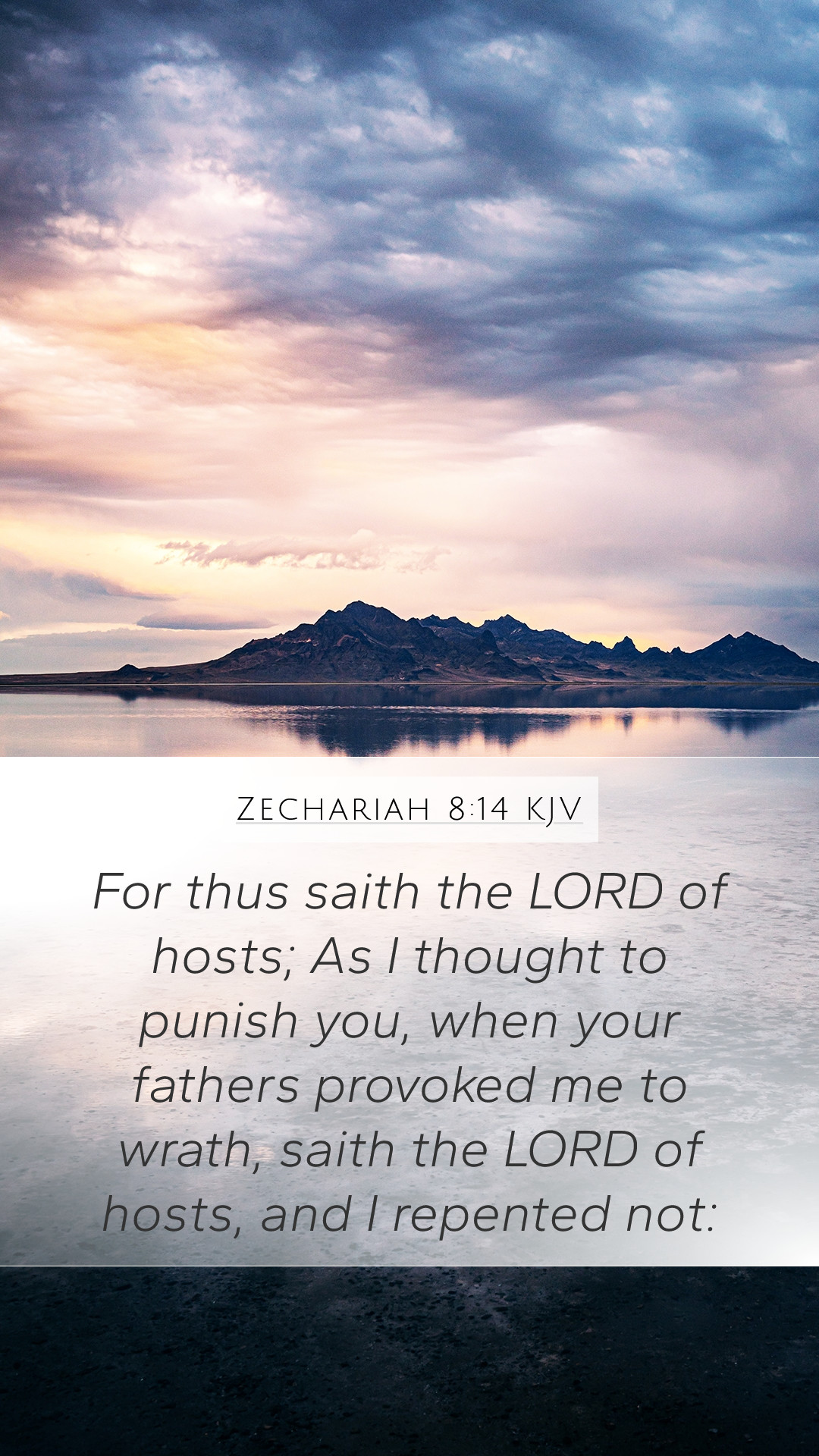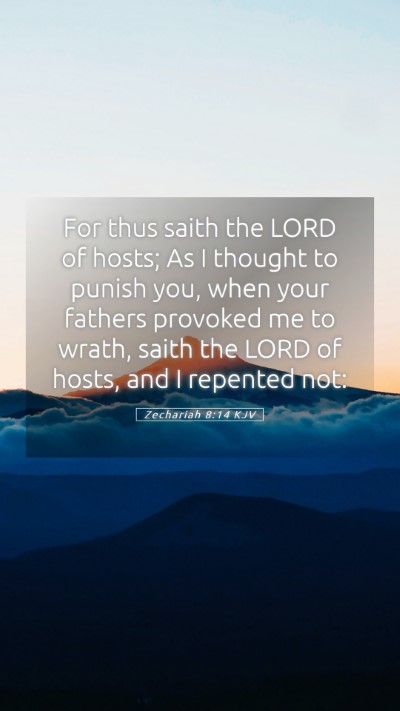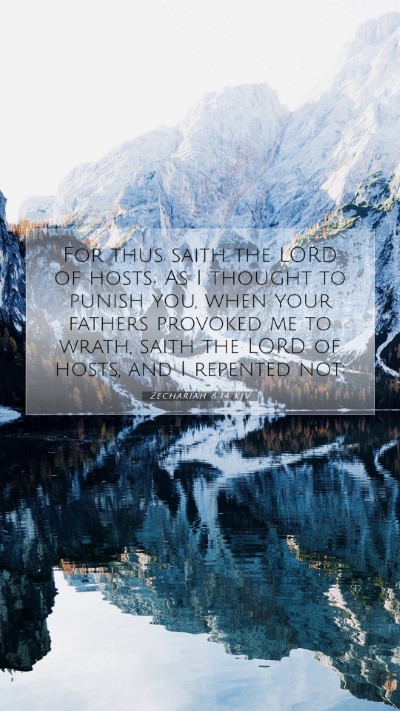Understanding Zechariah 8:14 - Bible Verse Meanings and Interpretations
Zechariah 8:14 states:
"For thus saith the Lord of hosts; As I thought to punish you, when your fathers provoked me to wrath, saith the Lord of hosts, and I repented not: so again have I thought in these days to do well unto Jerusalem and to the house of Judah: fear ye not."
This verse is a profound statement reflecting God’s intentions toward His people, particularly in the context of restoration after periods of punishment and exile. Below is a combined interpretation derived from several public domain commentaries, offering insights into its meaning and implications for believers today.
Key Themes in Zechariah 8:14
- Divine Judgment and Mercy: Matthew Henry emphasizes that God's initial intentions of judgment stemmed from the people's disobedience and sin. However, this verse marks a turning point illustrating God's readiness to show mercy once repentance occurs.
- The Role of Human Actions: Albert Barnes notes that the actions of the people affect God's response. Historically, the Israelites' complaints and rebellions elicited divine wrath; yet, their return to God’s favor brings His assurance of blessing.
- Encouragement Amidst Fear: Adam Clarke points out that God commands His people not to fear, as His intentions have shifted from punishment to benevolence. This serves as a powerful reminder of the hope and encouragement that God offers to those who turn back to Him.
Detailed Commentary on Zechariah 8:14
Historical Context: This verse is situated within a prophetic framework during a time of restoration for the Israelites after their Babylonian captivity. Acknowledging their past failures allows them to fully appreciate the grace and reaffirmed promises of God.
Theological Insights: The tension between divine justice and mercy is palpable here. God, while just, does not take delight in punishment, as suggested in the latter part of the verse. Instead, His delight is found in grace and restoration, making a future full of hope possible for Jerusalem and the house of Judah.
Application of the Verse Today
This passage has significant implications for contemporary believers:
- Understanding God’s Nature: The verse helps believers comprehend God as a just yet merciful deity, who, despite previous judgments, longingly desires reconciliation with His people.
- Encouragement for Return: Just as the ancient Israelites were reassured of God’s favor after their repentance, modern Christians can also find hope in the promise of God’s willingness to forgive and restore.
- Fear Not: The exhortation to "fear ye not" resonates deeply within the context of spiritual and emotional turmoil, providing comfort that God is actively working for our good.
Related Bible Verses
- Jeremiah 29:11: A promise of hope and future for God's people.
- Isaiah 54:7-8: Describes God's compassion and mercy after times of anger.
- Joel 2:12-13: An invitation to repentance and the promise of God’s return to blessing.
Conclusion
Zechariah 8:14 serves as a cornerstone for understanding the balance of divine justice and mercy. Through this verse, believers gain valuable bible verse insights about God's character and His approach towards humanity, particularly in times of distress and disobedience.
It reminds us that no matter our past, God’s plan always inclines towards restoration as long as we turn towards Him with repentant hearts.
Further Study Suggestions
For those seeking to deepen their knowledge and understanding of this scripture, consider joining bible study groups or utilizing bible study tools available online. Engaging with various bible commentary resources can enhance your comprehension of this and other complex passages.
Additionally, utilizing structured bible study guides can provide clarity on broader bible study topics, ensuring a well-rounded grasp of scripture interpretation.


